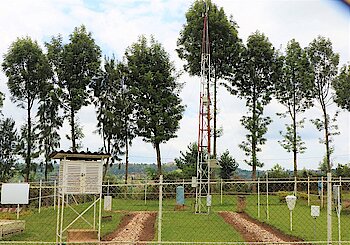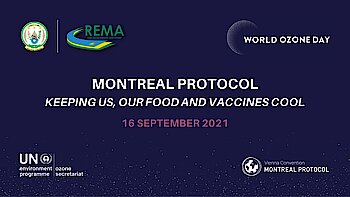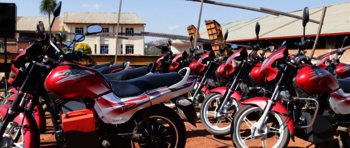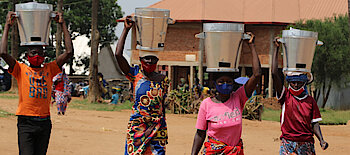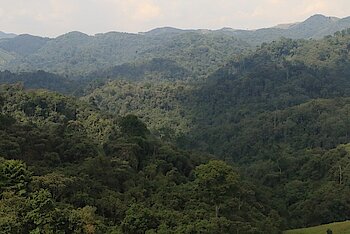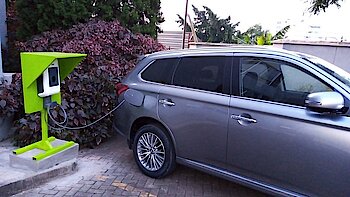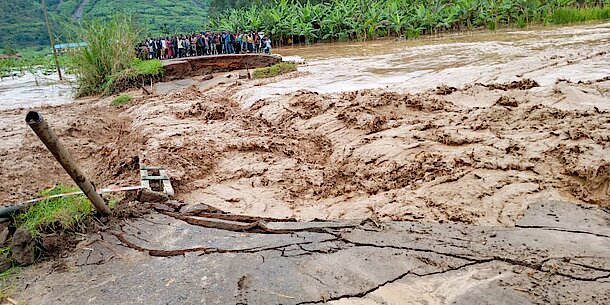
Essential things to know about the loss and damage due to climate change
The evidence of both global and local climate change impact is beyond dispute. There are clear effects of climate change occurring all across the planet. This includes unavoidable risks such as sea-level rise, desertification, and land degradation, while other direct consequences are heatwaves, floods, droughts, and other occurrences.
However, not all countries are equally impacted. There is no doubt that developing countries are mostly affected by climate change impacts; also referred to as loss and damage, and their capacity to deal with these effects is severely constrained due to the high cost and it is beyond their ability to adapt. This has led to an increase in calls for developed countries to compensate developing countries for the harm caused by climate change.
In fact, communities' abilities to avoid, prepare for, and manage with the impacts of climate change are actually hampered by a variety of capacities, experiences, and impediments. Imagine a village that has experienced a devastating flood, where a vulnerable population lives in slums with unsafe housing, a high population density, fragile infrastructures, limited access to essential services, higher proportionate costs of living, food insecurity, and increased health risks. Such a village will face a huge damage and loss from flood than any other community.
Some of the damage and loss could be the loss of human life, damage to property, destruction of crops, loss of livestock, non-functioning of infrastructure facilities and deterioration of health condition owing to waterborne diseases. There are also other associated impacts, such as the damage to infrastructure also causes long-term impacts, like the disruptions to clean water and electricity, transport, communication, education and health care. Sometimes, the damage and loss go beyond and destruct the fundamentals parts of history, identity, language and culture and lead to people migration. This truly indicate that the damages losses are irreversible.
Who is liable for these losses and damages?
This was a critical and controversial question during the climate negotiation from subsequent Conference of Parties (COPs) of the UNFCCC. This all started from the developed nations that have invented the combustion of engine, and they have benefited from burning fossil fuels. This was one key cause of temperature change due to increase of greenhouse gas emissions attributed to it. However, developed countries did not refer the loss and damage as a compensation issue. On other hand, the developing countries are the victim and in addition to this, their carbon footprint are small, such as Africa is responsible for only 4% of global emissions.
The losses and damages is important to be considered because it hampers the sustainable economic development of developing world. Therefore there is a need for resource to respond and rebuilt as developing countries are fighting for mitigation, adaptation as well as covering the cost of losses and damage from climate change induced impacts while their ability is very limited.
As a solution, COP27 delivered an historic outcome on the losses and damage fund, this decision taken in Egypt brings hope for the vulnerable impacted people and community for the global south that represent 80% of the world’s population and it is huge steps taken for climate justice.
What to be addressed under the losses and damage fund (LDF)?
As the losses and damage fund has been established, there is other steps to be taken to make it operational and fund mobilization start. The Loss and Damage Fund has great potential to alleviate the severe shocks due to climate change in vulnerable countries. LDF is an essential aspect for climate justice and it will help to address the geographic imbalance between the cause and effect of climate crisis.
However, for the fund to be effective, the root cause of climate change must be tackled and that involves reducing emissions.
More and more countries will experience the terrible effects of climate change unless emissions are dramatically cut. The world urgently needs to find more resources for mitigation, adaptation and loss and damage so that climate change will not erode humanity's chances to deliver on the sustainable development goals.
Topics
More posts
How Rwanda is using climate change data and projections to plan for the future
In 2011, Rwanda adopted a Green Growth and Climate Resilience Strategy to become a developed, climate-resilient, and low-carbon economy by 2050. To…
Rwanda celebrates World Ozone Day
Kigali, 16 September, 2021 - Today, Rwanda joins the rest of the world to mark the International Day for the preservation of the Ozone Layer. World…
Retrofit Electric Motorcycles Project; Another step towards emission reduction
The Greenhouse gases emission inventory report of 2015 indicated that the vehicles (that burns the fossil fuel) emit emissions at 13% of the total…
What you should know about Climate Adaptation Summit 2021 that is taking place online
Even though, the climate change is increasingly distressing, fortunately, there are many actions we can do to ensure our future is as prosperous as…
Beneficiaries of REMA’s Green Amayaga Project receive improved cookstoves to promote energy efficiency
Rwanda Environment Management Authority through the Forest Landscape Restoration in the Amayaga Region (Green Amayaga) Project is distributing…
Develop business and deliver green growth solutions
The economic development is a concern for every country around the World and everyone is concerned with personnel development. However, it is no…
From ambition to action: Rwanda’s climate resilience plan
On Saturday, December 12, 2020, global leaders are meeting to discuss a problem on many of our minds: climate change. The extraordinary virtual…
Green New Deal: Lesson Learned from the Republic of Korea, Rwanda and the European Union
This webinar was co-organized by the Korea Ministry of Foreign Affairs and the UNDP Seoul Policy Centre (USPC). It is the second event on the theme of…
REMA get the Electric Vehicle to support Rwanda's environmental protection efforts
The Rwanda Environment Management Authority (REMA) has taken delivery of its first ever electric vehicle that will be used to support the…
